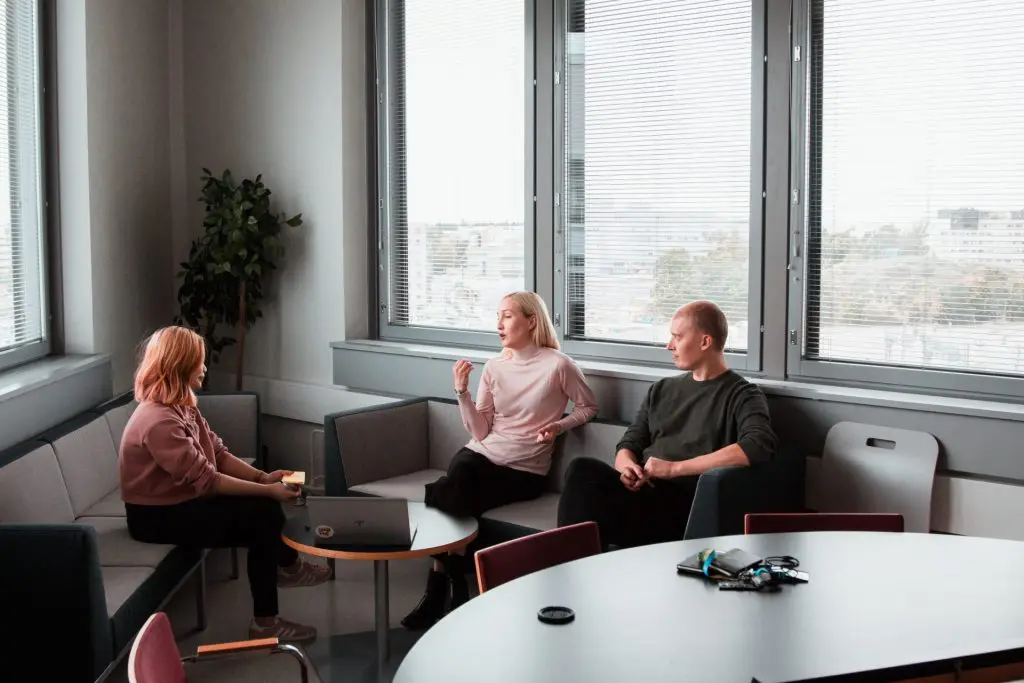Marriage counseling is surprisingly effective – much more so than many people believe. According to research by the American Psychological Association, emotionally-focused therapy (EFT) works 75 percent of the time. In fact, it is so effective, many experts credit it with helping to decrease the divorce rate – something that we’ve seen over recent years.
Of course, it’s not 100 percent effective. There are still 25 percent of couples who don’t make it, despite help. However, usually, the problems in these relationships go beyond emotional issues and into more serious territory, such as physical abuse, substance addiction and couples who’ve already decided to separate and be with other people.
Why Is There So Much Skepticism About Marriage Counseling?
Many people want to know whether marriage counseling works. It’s a question that comes up regularly.
The reason for this skepticism has to do with the methods that therapists used before the 1980s. Back then, the success rate for couples was equivalent to a coin toss. You had a fifty percent chance of patching up your relationship with professional help, which didn’t seem like good odds.
However, most therapists were operating naively. They believed that the root of issues in marriages were the explanations that each party gave themselves about the other’s behavior.
Of course, this was partly correct. Cutting out things like contemptuous comments and sarcasm were absolutely key for marital bliss, but not the whole solution. Couples had to come together to form a team or a unit where each person was free to live their life, supported by the other.
More recently, the field has evolved. Now counselors use emotionally-focused therapy (EFT). This strategy appears to be effective in ordinary couples as well as those with more extraordinary backgrounds, such as people with PTSD, couples with chronically ill children, and those with military histories.
Post-treatment, around 75 percent of couples say that they experience improvement in their relationships, according to the Dyadic Adjustment Scale. The biggest change is a reduction in complaints about the relationship – something that researchers refer to as “relationship distress.” Generally speaking, people are happier and healthier than before.
Why Doesn’t Therapy Always Work?
Unfortunately, EFT doesn’t always work. If one partner continues behaving abusively toward the other, no amount of counseling can correct it.
In cases like these, experts recommend individual therapy. The issue is not the relationship itself, but the history and actions of one or both of the spouses. Therapy for the abusive partner will generally focus on identifying the source of their behavioral traits, while therapy for the other will be about coping with trauma and forgiveness.
EFT is also ineffective in couples in the process of separating. The goal of the approach is to bring couples closer together, which runs contrary to divorce or other means of ending the relationship.
How Does Emotionally-Focused Marriage Counseling Work?
Many couples get into bad habits. Their interactions take on a kind of formula which plays out again and again, harming the relationship.
EFT tries to intervene in this dynamic by changing how each party responds to the other. The goal is to practice these emotional responses, identify them, and then use techniques to either abate them or prevent them from occurring in the first place. In turn, the hope is that this will create a more secure attachment.
Importantly, EFT requires both parties to participate fully. If they don’t, then old habits are much more likely to return.
How To Find The Right Counselor
Not all counselors are the same. Ideally, if you are interested in marriage counseling, you want a counselor who isn’t arriving at the discussion with any biases or preconceived notions. You’ll also want one with a manner that makes you feel comfortable expressing yourself.
Listen to your gut. Trust your instinct. When it comes to decisions like this, it is often the most powerful tool you have.
What To Expect In Your First Session
During the first session, your counselor will find out as much about you and your relationship as they can. This fact-finding mission helps them put your relationship in context and understand where problems are arising. You may have joint, individual or family sessions
At this stage, you may need to share intimate details about yourself and your partner. Doing this might feel uncomfortable but, remember, counselors are trained professionals. Anything you say they will treat with the utmost respect and confidentiality. Their goal isn’t to ridicule or shame you, just to restore happiness and joy in your marriage.
Identify Your Issues
The next step is to identify the issues that your marriage faces. You may feel distressed in your relationship, but you might not know why. Counselors are great at helping you identify the specific emotional triggers and problems that you may face.
Common reasons for disharmony include:
- Arguments
- Lack of physical intimacy
- Lack of trust
Going deeper, these problems can be felt as rejection, pain, betrayal, anger, fear and rage.
Create A Plan For Improving Your Relationship
The next step is to create a plan for your relationship. This is essentially a timeline that shows you what you would like to achieve, and by when. Think of it as a project milestone schedule where, at each point in time, you are moving to the next stage.
In building the plan for your relationship, the counselor will leverage your strengths. They will find out what each partner is good at emotionally, and then use that to improve the quality of the relationship.
They will also identify the weaknesses or stumbling blocks that could potentially get in the way of relationship improvement. During sessions, you will discuss these aspects of your character and what you can do to address them.
Learn New skills, Work Hard And Do Your Homework
Lastly, you’ll need to put what you learn in marriage counseling into practice. You’ll want to cease viewing your partner as an opponent and, instead, see them as a team member. You’ll also need to have empathy for your spouse and see the world as they see it more often.
Each member of the couple needs to be willing to address the problems in the relationship to bring about positive change. Without that, it simply won’t happen.
Marriage Counseling in Lakewood & Longmont Colorado
If you are having marriage problems you probably have questions. This is normal and we would be happy to help you find the answers you seek. We invite you to call us at 720-551-4553 for a free 20-minute phone consultation with a marriage specialist. You can schedule your appointment via phone, or the contact page on our website. We look forward to hearing from you.
Self Care Impact Counseling envisions a new age of counseling for adolescents, adults, couples & groups that makes a REAL difference with core values of GROWTH | BALANCE | COMPASSION | INNER HARMONY.
Author, Alayna Baillod, LCSW, EMDRIA Approved EMDR Consultant/Therapist, Level 1 & 2 Gottman Couples Therapy, Trained in Emotion- Focused Therapy, CBT, DBT, IFS (Internal Family Systems), Attachment Theory, Narrative Therapy, Solution- Focused Therapy. Alayna is as real as-it-gets! Clients see Alayna as down-to-Earth, relatable, having a good sense of humor (and using it!) and confident in sharing her therapeutic expertise. She is an extensively trained, passionate therapist who strives to meet clients where they’re at while providing an appropriate amount of challenge to gently push clients to grow beyond their comfort zone. You can expect a supportive, guiding and grounded presence in the therapy room with Alayna.


